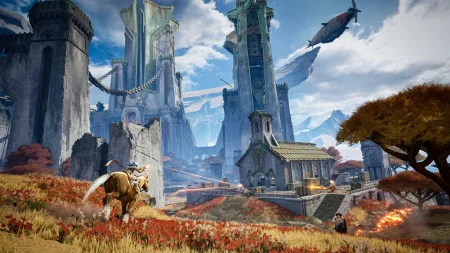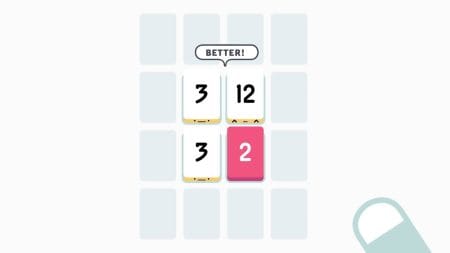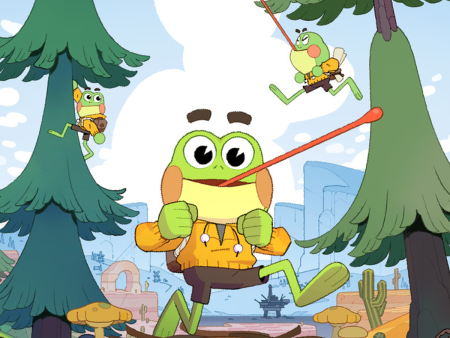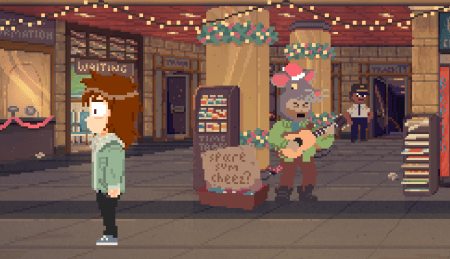Part of the fun of covering video games is the act of uncovering. For every great game that’s celebrated on Metacritic or honored at the Game Awards, there are countless others that go unnoticed.
2011’s El Shaddai: Ascension of the Metatron is one of those titles. Developed by Ignition Tokyo and published by UTV Ignition Games (both now defunct), El Shaddai released during a crowded year that brought us—among others—Batman: Arkham City, Uncharted 3, Portal 2, Gears of War 3, and Skyrim. Although relatively well-received, El Shaddai never found its footing with players and was soon forgotten.
And that’s a shame. For as great a year as 2011 was, I always remembered the striking cover art of El Shaddai and vowed to play it one day.
Now, in 2024, I got that wish. El Shaddai: Ascension of the Metatron HD Remaster released for Nintendo Switch on April 28 courtesy of crim Co. and Gamera Games, allowing a new lease on life for a game that had all but faded from gaming memory. And while it’s clear why the game never caught on—the combat is repetitive, and the story nonsensical—I’m glad it exists. In a sea of sameness, El Shaddai is artistically bold and constantly surprising.

Angels May Cry
El Shaddai tells the story of Enoch, a scribe sent by God to save the world from an impending flood. To stop the flood, Enoch must find and defeat seven “fallen angels”—sinners who had been exiled from heaven for their crimes. After centuries of searching, Enoch discovers their home on Earth: a massive tower containing entire cities worth of followers.
Inspired by the Book of Enoch, a Hebrew text that follows Enoch in his divine journey, El Shaddai tells about as cohesive a story as you’d expect from a game loosely based on 2,000-year-old scripture. That is to say, it isn’t very cohesive at all. Expect lots of name drops—from fallen angels like Arakiel and Baraqel to creatures known as Nephilim—with little introduction or backstory.

But that’s not really why we’re here. Rather than tell an intelligible narrative, El Shaddai opts to tell an emotional one, complete with striking vistas, stylish characters, and staggering set pieces. It’s light on substance, heavy on style—and I’m all for it. Much like games like Devil May Cry, this is one to experience for campiness and vibes alone.
And make no mistake: The vibes are there. Whether you’re navigating an abstract city skyline, shredding down a futuristic highway on a motorcycle, or platforming to the backdrop of ornate stained glass, each of El Shaddai’s eleven levels is its own wonderful aesthetic. Come in with zero expectations, and prepare to be wowed.

God’s Errand Boy
As Enoch ascends the tower, you’ll settle into a fairly simple groove: Take in the sights, beat up some enemies, and finish the level by defeating a fallen angel. Along the way, you’ll routinely encounter Lucifel: an archangel who keeps God on speed dial to provide updates on your progress. Literally—he calls the man upstairs via cell phone. He also acts as your save point. It sounds silly, but it’s a surprisingly cool touch.
The real meat of the gameplay is El Shaddai’s combat. Although a fairly simplistic beat ‘em up, the game develops a unique hook in the form of stealing weapons. After dealing enough damage to an enemy, Enoch can take and purify their weapon, making it his own. Initially, you start with a single weapon: the Arch, a close-range sword capable of aerial combos. Eventually, you unlock two more: the Gale, which lets you fire bullets and dash around the battlefield; and the Veil, a shield that doubles as a powerful blunt weapon.

In its marketing materials and in-game manual, El Shaddai touts its combat as a multi-layered experience. The three weapons play into a rock, paper, scissors dynamic, with bosses often requiring the player to utilize certain weapons to exploit a particular weakness. For most of the game, though, you’ll mainly be juggling weapons with little rhyme or reason—not too dissimilar from my experiences playing as Noctis in Final Fantasy XV.
Even if it isn’t particularly deep, there are moments where the combat shines. The aforementioned bosses add some variety to the mix, and once you find a groove with the (again, basic) combo system, you’ll be executing parries and breaking enemy guards among the best of Heaven’s fighters. It’s just a shame there isn’t more to master across El Shaddai’s eight- to 10-hour runtime.

Heavenly Sights, Hellish Execution
If El Shaddai: Ascension of the Metatron was just its story or combat, it wouldn’t be worth much. Thankfully, that isn’t the case.
The main attraction, by far, is the game’s presentation. If the screens in this review haven’t already conveyed it, this is a pretty game, with gorgeous backdrops and inventive color schemes. Each level looks the part, punctuated with the occasional shift in perspective from 3D to 2D. Even the game’s intro credits manage to surprise and dazzle. And did I mention Lucifel, the save guy?

The soundtrack is equally impressive, offering compositions ranging from melancholic orchestral numbers to pulse-pounding choir chants. So, even when the combat drags or platforming gets wonky, you’re at least guaranteed a feast for the eyes and ears.
It isn’t all good news, however. As the name implies, El Shaddai: Ascension of the Metatron HD Remaster has been repackaged as a definitive version of the 2011 experience. The main addition is the ability to choose between a “HiRes” mode that ups the image quality and a performance mode that prioritizes a stable framerate. Sadly, the quality mode dips notably when the action gets hot, while the performance mode looks decidedly muddy by comparison.
Normally, I wouldn’t care much, as the performance woes hardly distract from the game itself. But this is a remaster of a 13-year-old game, and the Nintendo Switch is fully capable of outputting quality images at 60 frames per second. The lack of execution here says far less about the hardware, and far more about the efforts of the team responsible for the remaster.

Final Thoughts
El Shaddai: Ascension of the Metatron is an imperfect wonder. On the one hand, its novel world and beautiful sights always kept me interested in exploring what’s around the bend. On the other hand, its simple combat and archaic storytelling hold it back from being more than just a gorgeous vignette. It doesn’t help that the remaster offers little in terms of frills or extras.
At $29.99, this is a tough sell for those expecting a “definitive” rerelease in line with modern performance expectations. Still, if you’ve never played El Shaddai before and are curious about what you missed back in 2011, I can’t help but suggest you give it a look. The vibes are that good.
Score: 7.0/10
El Shaddai: Ascension of the Metatron HD Remaster is available now for Nintendo Switch and Windows PC. It retails for $29.99.
Disclaimer: A review code was provided by the publisher.
David is the founder of The Punished Backlog. He has a problem finishing games he starts.
Just beat: Hollow Knight: Silksong.
Working on: Yakuza 0, Iconoclasts, Metroid Prime 4: Beyond.
Can't wait for: Demon Tides.
Follow David on Twitter at @David_Silbert to keep up to date with all things The Punished Backlog.











